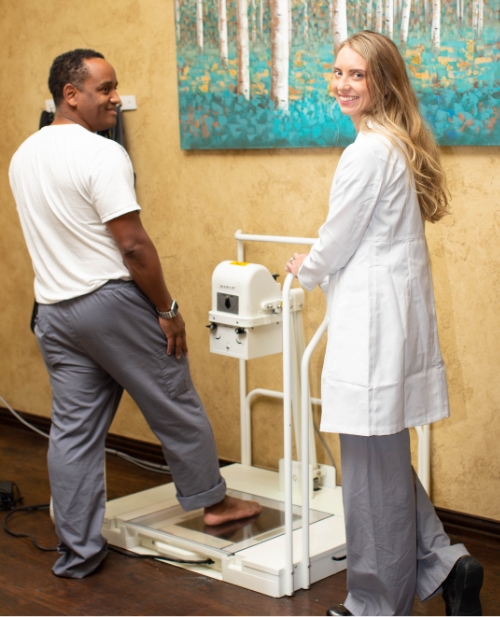
Soft tissue masses are a build up, thickening and hardening, of the skin, usually under the ball of the foot, due to consistent pressure and friction to that area. This thickening of the skin is your foot’s natural reaction and attempt to protect itself against additional stress, pressure and friction.
Tight footwear, bunions, and hammertoes are common causes of excessive soft tissue masses. If you have diabetes or another medical condition that causes poor circulation to your feet you may be at greater risk of complications from soft tissue masses.
Symptoms of Foot Soft Tissue Masses
Early intervention is a critical step to treating any foot problem. You should go to the podiatrist if you recognize any of these common symptoms of soft tissue mass:
- Thick, rough, hardened skin
- Hard, raised bump on the skin of your toes or feet
- Tenderness, redness, soreness, and pain under the skin
- Flaky, dry, or waxy skin
If you experience one or more symptoms, schedule an appointment with a Frisco podiatrist to begin treatment and avoid more serious problems.
Treatment Options for Foot Soft Tissue Masses
Options for treatment may vary based on the length of time the soft tissue masses have been present and the severity of pain the soft tissue masses are causing at the time of diagnosis. While treatment will vary from person to person, soft tissue masses are commonly treated by:
- Switching to more comfortable shoes.
- Wearing shoe supports and inserts.
- Padding and taping your foot to alleviate pressure and pain.
- Medication to help control pain and inflammation.
- Prescription orthotic devices to help with mobility.
Depending on the severity of your soft tissue masses and the cause, you may require surgical treatment. More serious medical treatments for soft tissue masses include:
- Removal of soft tissue masses to pare down the size of the growth.
- Salicylic acid patch applied to dissolve soft tissue masses over time.
- Antibiotics to reduce the risk of infection.
- Custom-made foot inserts or orthotics to prevent recurring soft tissue masses.
Surgery is considered as a final option and can correct a foot deformity that is the underlying cause of your soft tissue mass.
Prevent Foot Soft Tissue Masses
As with other foot problems, the key to prevention is proper foot care. To help prevent soft tissue masses from developing follow these simple suggestions:
- Wear socks, coverings, or pads.
- Reduce friction and protect areas that rub against footwear.
- Buy shoes with a wide toe box.
- Provide additional space between your toes and the end of the shoe.
If the soft tissue masses on your feet are causing you pain and discomfort, call our Frisco office at (214) 385-8822 to schedule an appointment with Board Certified Dr. Verville.







